Introduction
Libertarianism (from French: libertaire, itself from the Latin: libertas, lit. 'freedom') is a political philosophy that upholds liberty as a core value. Libertarians seek to maximize autonomy and political freedom, emphasizing equality before the law and civil rights to freedom of association, freedom of speech, freedom of thought and freedom of choice. Libertarians are often skeptical of or opposed to authority, state power, warfare, militarism and nationalism, but some libertarians diverge on the scope of their opposition to existing economic and political systems. Various schools of libertarian thought offer a range of views regarding the legitimate functions of state and private power. Different categorizations have been used to distinguish various forms of Libertarianism. Scholars distinguish libertarian views on the nature of property and capital, usually along left–right or socialist–capitalist lines. Libertarians of various schools were influenced by liberal ideas.
In the mid-19th century,' libertarianism originated as a form of left-wing politics such as anti-authoritarian and anti-state socialists like anarchists, especially social anarchists, but more generally libertarian communists/Marxists and libertarian socialists. These libertarians sought to abolish capitalism and private ownership of the means of production, or else to restrict their purview or effects to usufruct property norms, in favor of common or cooperative ownership and management, viewing private property as a barrier to freedom and liberty. While all libertarians support some level of individual rights, left-libertarians differ by supporting an egalitarian redistribution of natural resources. Left-libertarian ideologies include anarchist schools of thought, alongside many other anti-paternalist and New Left schools of thought centered around economic egalitarianism as well as geolibertarianism, green politics, market-oriented left-libertarianism and the Steiner–Vallentyne school. After the fall of the Soviet Union, libertarian socialism grew in popularity and influence as part of anti-war, anti-capitalist and anti- and alter-globalisation movements. (Full article...)
Selected article
Social anarchism, sometimes referred to as socialist anarchism, is a non-state form of socialism and is considered to be the branch of anarchism that sees individual freedom as being dependent upon mutual aid.
Social anarchist thought emphasizes community and social equality as complementary to autonomy and personal freedom. They also advocate the conversion of present-day private property into social property or the commons while retaining respect for personal property. The term is used to describe those who—contra individualist anarchism—place an emphasis on the communitarian and cooperative aspects of anarchist theory while also opposing authoritarian forms of communitarianism associated with groupthink and collective conformity, instead favouring a reconciliation between individuality and sociality.
Emerged in the late 19th century as a distinction from individualist anarchism, social anarchism is considered an umbrella term that includes—but not limited to—the post-capitalist economic models of anarcho-communism, collectivist anarchism and sometimes mutualism as well as the trade union approach of anarcho-syndicalism, the social struggle strategies of platformism and specifism and the environmental philosophy of social ecology.
The term "libertarianism" was coined and used as synonymous for anarchism and socialism, hence the terms "social anarchism" and "socialist anarchism" are often used interchangeably with libertarian socialism, left-libertarianism or left anarchism.
Selected quote
| “ | Even more remarkably, the Libertarian party achieved this growth while consistently adhering to a new ideological creed—"libertarianism"—thus bringing to the American political scene for the first time in a century a party interested in principle rather than in merely gaining jobs and money at the public trough. We have been told countless times by pundits and political scientists that the genius of America and of our party system is its lack of ideology and its "pragmatism" (a kind word for focusing solely on grabbing money and jobs from the hapless taxpayers). How, then, explain the amazing growth of a new party which is frankly and eagerly devoted to ideology?
One explanation is that Americans were not always pragmatic and nonideological. On the contrary, historians now realize that the American Revolution itself was not only ideological but also the result of devotion to the creed and the institutions of libertarianism. The American revolutionaries were steeped in the creed of libertarianism, an ideology which led them to resist with their lives, their fortunes, and their sacred honor the invasions of their rights and liberties committed by the imperial British government. Historians have long debated the precise causes of the American Revolution: Were they constitutional, economic, political, or ideological? We now realize that, being libertarians, the revolutionaries saw no conflict between moral and political rights on the one hand and economic freedom on the other. On the contrary, they perceived civil and moral liberty, political independence, and the freedom to trade and produce as all part of one unblemished system, what Adam Smith was to call, in the same year that the Declaration of Independence was written, the "obvious and simple system of natural liberty." |
” |
| — Murray Rothbard (1926–1995) For a New Liberty (1973) |
Selected picture
 The Libertatis Æquilibritas is a symbol of anarcho-capitalism |
General images
Selected biography -
Llewellyn Harrison Rockwell Jr. (born July 1, 1944) is an American author, editor, and political consultant. A libertarian and a self-professed anarcho-capitalist, he founded and is the chairman of the Mises Institute, a non-profit promoting the Austrian School of economics.
After graduating from university, Rockwell had jobs at the conservative Arlington House Publishers, the radical-right John Birch Society, and the traditionalist Hillsdale College. Reading the works of Murray Rothbard, who became his mentor, led Rockwell to become an ardent believer in Austrian economics and what he calls "libertarian anarchism". Rockwell was chief of staff to Congressman Ron Paul from 1978 to 1982, and was a founding officer and former vice president at Ron Paul & Associates, which published political and investment-oriented newsletters bearing Paul's name. Racist and homophobic content in those newsletters became a controversy in Paul's later campaigns; Rockwell denied ghostwriting it but acknowledged a role in the promotion. Rockwell partnered with Rothbard in 1982 to found the Mises Institute in Alabama, where , Rockwell still serves as chairman. (Full article...)Related portals
Parent portals
Socio-political portals
Topics
Categories
Points of interest
| Points of interest related to Libertarianism on Wikipedia: History – Portal – Category – WikiProject – Alerts – Deletions – Assessment |
Associated Wikimedia
The following Wikimedia Foundation sister projects provide more on this subject:
-
 Commons
Commons
Free media repository -
 Wikibooks
Wikibooks
Free textbooks and manuals -
 Wikidata
Wikidata
Free knowledge base -
 Wikinews
Wikinews
Free-content news -
 Wikiquote
Wikiquote
Collection of quotations -
 Wikisource
Wikisource
Free-content library -
 Wikiversity
Wikiversity
Free learning tools -
 Wiktionary
Wiktionary
Dictionary and thesaurus
-
 List of all portalsList of all portals
List of all portalsList of all portals -
 The arts portal
The arts portal -
 Biography portal
Biography portal -
 Current events portal
Current events portal -
 Geography portal
Geography portal -
 History portal
History portal -
 Mathematics portal
Mathematics portal -
 Science portal
Science portal -
 Society portal
Society portal -
 Technology portal
Technology portal -
 Random portalRandom portal
Random portalRandom portal -
 WikiProject PortalsWikiProject Portals
WikiProject PortalsWikiProject Portals
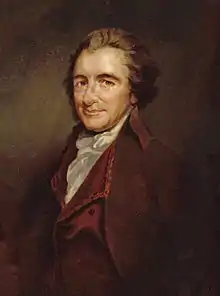

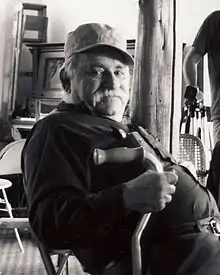

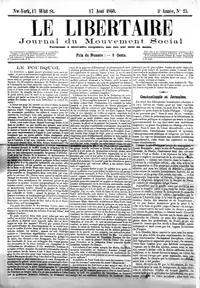
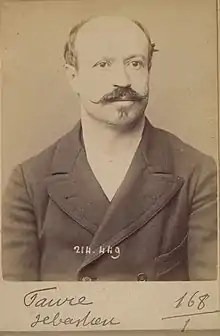
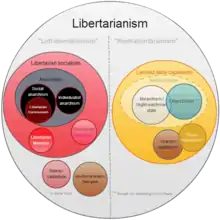



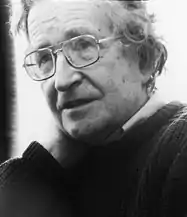

.jpg.webp)
